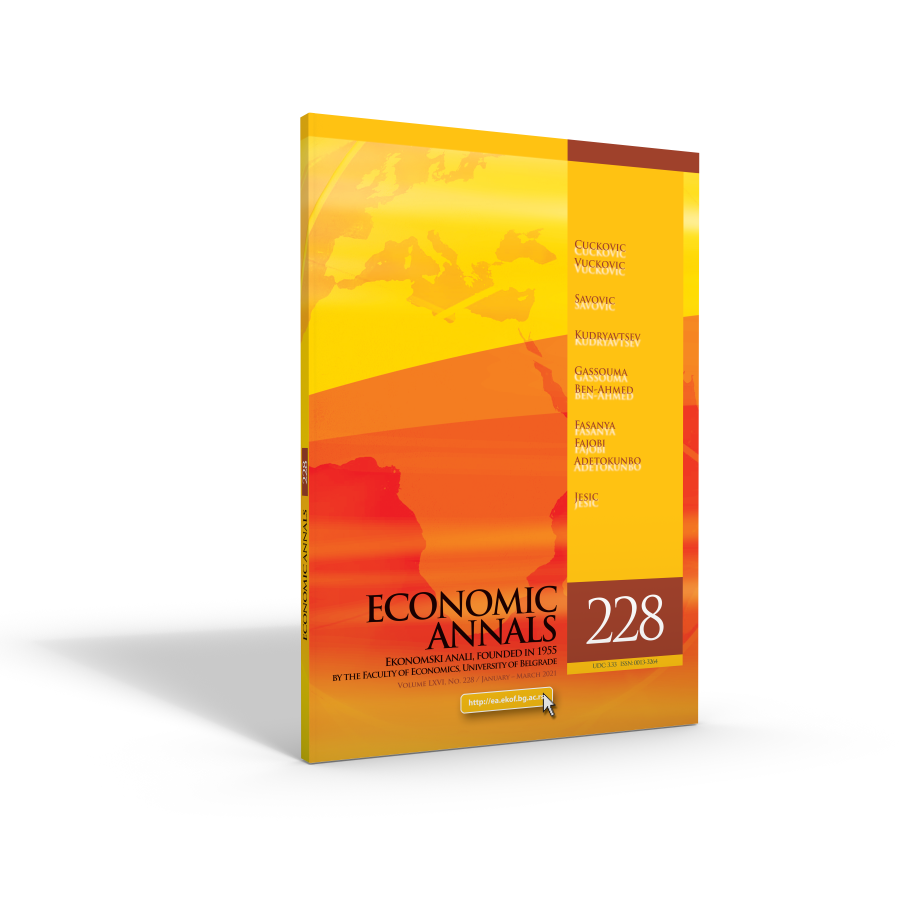THE ROLE OF FOREIGN BANKS IN THE TRANSMISSION OF MONETARY POLICY: EMPIRICAL EVIDENCE FROM TUNISIA
##plugins.themes.bootstrap3.article.main##
##plugins.themes.bootstrap3.article.sidebar##
Mohamed Sadok Gassouma
Kais Ben-Ahmed
Kais Ben-Ahmed
Abstract
This paper presents an em-pirical analysis of the effect of monetary policy shocks on credit supply in Tunisia, using a vector autoregressive model and a nonlinear interactive model. The focus is on the magnitude of these shocks in the pres-ence of foreign banks. The variables of in-terest are the concentration index of deposit banks, and monetary policy shocks based on the monthly data of 27 universal and business banks covering the period 1993 to 2016. The results support a positive and significant impact of concentration index on credit supply. However, monetary policy shocks appear to have no significant effect when the market is concentrated with the entry of foreign banks. The findings of this study also reveal that the entry of foreign banks neutralises monetary policy shock transmission in the credit supply, which may be offset by market discipline.
##plugins.themes.bootstrap3.article.details##
Keywords
policy shocks, competitive-ness, credit supply, banks, Tunisia
JEL Classification
E52
Issue
Section
Articles
How to Cite
Sadok Gassouma, M., & Ben-Ahmed, K. (2021). THE ROLE OF FOREIGN BANKS IN THE TRANSMISSION OF MONETARY POLICY: EMPIRICAL EVIDENCE FROM TUNISIA. Economic Annals, 66(228), 101-122. https://doi.org/10.2298/EKA2128101G
How to Cite
Sadok Gassouma, M., & Ben-Ahmed, K. (2021). THE ROLE OF FOREIGN BANKS IN THE TRANSMISSION OF MONETARY POLICY: EMPIRICAL EVIDENCE FROM TUNISIA. Economic Annals, 66(228), 101-122. https://doi.org/10.2298/EKA2128101G

